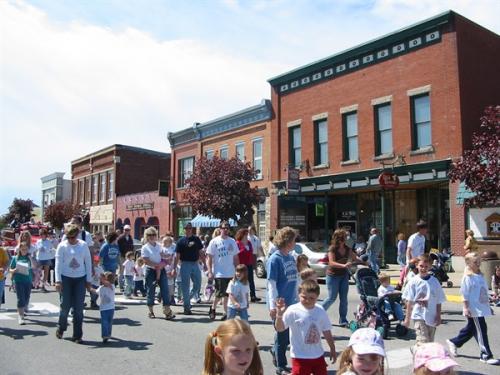Michigan Main Street seeks applicants for 2014
The Main Street Four-Point Approach® helps traditional downtowns and neighborhood commercial districts leverage assets, adapt to a changing economy, celebrate public space, and organize for success.
The Michigan Main Street Center is seeking applicant communities for 2014 for the Associate Level program. Traditional downtowns or neighborhood commercial districts are eligible to apply. The Associate Level program provides communities with no-cost training opportunities with the goal of providing communities with a basic understanding and knowledge of the Main Street Four-Point Approach®. Lasting one year, the Associate Level program is a prerequisite for the five-year Select Level Michigan Main Street program.
According to the Michigan Main Street Center website, the Main Street Four-Point Approach® is a community-driven, comprehensive strategy that encourages economic development through historic preservation in ways that are appropriate for today’s marketplace. Developed by the National Trust for Historic Preservation in 1977, overall the Main Street Four-Point Approach® seeks to retain historic commercial architecture and economic activity in small-city downtowns. The four points include Design, Economic Restructuring, Promotion and Organization.

Photo: Boyne City downtown, Michigan Main Street Center
Design refers to a downtown’s physical infrastructure and the focus is to leverage its assets, including historic buildings, streetscapes, parks and anything else that frames the public space and influences social and economic activity. Essentially, the design element of the Main Street Four-Point Approach® is a Placemaking strategy.
Economic Restructuring refers to the steps that a unit of government or downtown development authority can take to help usher in the New Economy. Global economic changes have been affecting main streets for years and this approach recognizes that government plays a role in helping existing businesses expand and recruiting new businesses by converting unused spaces into productive properties, facilitating entrepreneurial networks and generally working to improve the competitiveness of businesses in the downtown.
Promotion is another cornerstone of the Main Street Four-Part Approach® and it is a marketing strategy focused on the downtown’s unique characteristics with a target audience that includes residents, visitors, investors and business owners. Beyond promotion of retail activities, the Main Street program encourages promotion of special events and activities (e.g. think The Power of 10) that get people on the sidewalks and in the streets to stimulate commercial activity and investment in the area.
Organization focuses on involving community stakeholders to work towards a common goal for the district. The Main Street program encourages an organizational structure that consists of a governing board and four standing committees. Volunteers on the board are coordinated and supported by a paid Main Street manager. The purpose of a formal structure is to divide the workload, define responsibilities, and build collaboration among stakeholders.
Michigan State University Extension can also help communities develop strategies to revitalize traditional downtowns, neighborhood centers and suburban districts through training such as the Michigan Placemaking Curriculum and technical assistance from one of our land use educators.
For information on the Michigan Main Street Center’s Associate Level program, visit: www.michiganmainstreetcenter.org. Applications are due November 1, 2013.



 Print
Print Email
Email




